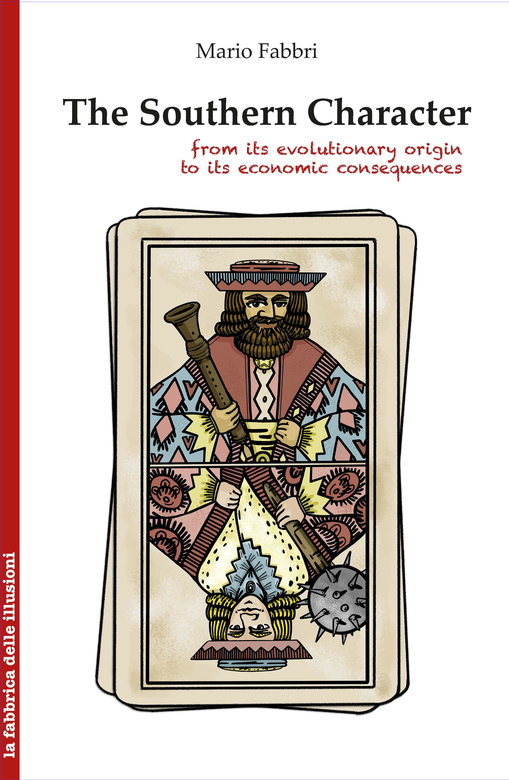
A fascinating dive into anthropology, history, genetics, philosophy, and culture, The Southern Character by Mario Fabbri presents a strong argument and compelling explanations behind a fundamental “divide” – both geographic and genetic – of our species. In short, Fabbri proposes that those people residing near the equator are distinct from their northern counterparts in terms of personality, behavior, traditions, and ambitions. Importantly, he doesn’t argue that this results from any inferiority of culture or intelligence, but rather informed our collective genetic and migrational history.
In an effort to avoid criticism as being reductionist, prejudicial, or lacking in nuance, Fabbri begins the book by addressing some of the broader brushstrokes that must be taken on such a topic, particularly in a book just shy of 200 pages. However, he also acknowledges that there is a significant grey area of experience and behavior within the binary of north and south for which he argues. Choosing his words carefully, and erring on the side of over-explanation, Fabbri is critically self-aware, laying out a clear and apparently unbiased case, without slipping into outdated stereotypes.
Relying on sound and widely accepted scientific tenets as his compass and grounding for logic, Fabbri begins by exploring the genetic origins of character and behavior, coupled with natural selection, in order to refute the supposition that “there is no proof that the groups of mankind differ in their innate mental characteristics.” Like any good researcher unraveling a bold claim, his arguments are intuitively ordered and supported by relevant data and obvious parallels. Over the course of this dense thesis, readers should expect subtle revelations in many fields, from psychology and sociology to economics and evolutionary biology, all leading to greater clarity.
The second part of the book focuses more on societal structures at large, and the manner in which biological differentiation has affected such societies. The author then focuses his lens on Italy as an “exemplary” case study, beginning with its history, and how the northern and southern characters have manifested differently within the same country. This internal conflict is then explored in the context of the Italian economic crisis – what caused it and what a path forward could look like. The final section of the book acts as a restatement of fact; less detailed examples of such northern and southern traits in locations across the globe cement the author’s argument in place.
Taking this rhetorical journey feels like a four-dimensional laboratory puzzle, with different pieces slipping into place to powerfully support the original hypothesis. From start to finish, words are rarely wasted, meaning that each quote, supporting argument, academic reference, and data point progresses the thesis. However, there are also some lines that feel almost poetic in their conclusions and phrasing, which opens the door for some unnecessarily flowery syntax. While this does make the reading experience more accessible, it makes the tone a bit inconsistent. Otherwise, there are few if any grammatical or editing mistakes, and the sporadic illustrations are well chosen and insightful.
The market for this type of academic postulate would typically be niche, but Fabbri’s writing is engaging throughout, and his confident analysis of what makes humanity tick is decidedly appealing, for a strong, concise, and compelling work of social history.
Book Links
STAR RATING
Design
Content
Editing
Get an Editorial Review | Get Amazon Sales & Reviews | Get Edited | Get Beta Readers | Enter the SPR Book Awards | Other Marketing Services























Leave A Comment